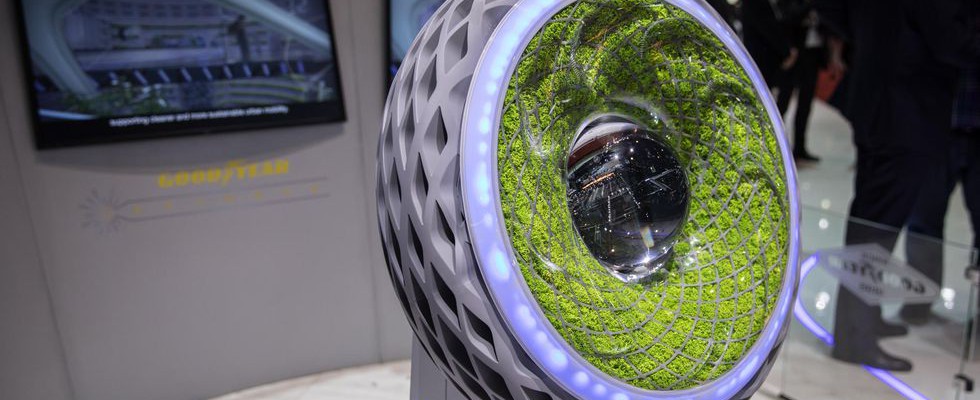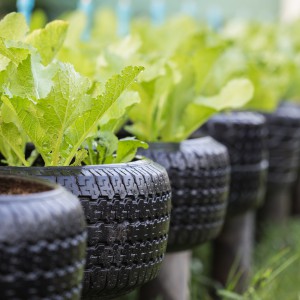The Future of Tires is… Plant-Based?
By Carter Hammett
In contributor Kenneth E. Seaton’s cover story this issue, you’ll come across a reference to tires made out of—wait for it—dandelions.
You read that correctly. Dandelions, those annoying, invasive weeds that never seem to leave your lawn actually have benefits in ways you might not have thought about before.
For several years now, German tire manufacturer Continental Tire has been researching how the flowering weed can be used as a key component in tires. In conjunction with several partners, Continental has tested the first tires where the tread is composed entirely of dandelion natural rubber as a polymer.

Up to 30 percent of the car tire includes natural rubber, while trucks use proportionately higher volumes. Most rubber is sourced from rubber trees which can only be cultivated in the rubber belt around the equator, which occupies only a tiny portion of the earth’s land surface. With global demand for natural rubber projected to increase sharply and potentially outpace the supply available, it’s only natural for researchers to seek out alternative sources. This is where dandelions come in.
But it’s not just any dandelion. There’s a Russian species which is the only plant that can so far be used an alternative source for natural rubber production. That’s because the roots of this particular species contain the natural rubber latex needed for tire production. The implications include a supply that’s less sensitive to weather than traditional rubber trees.
Shipping rubber from developing nations in South America or Africa to places in Europe or North America is a costly and time-consuming process that has a huge impact on CO2 output. Dandelions are a hearty plant that are adaptable in moderate climates and areas unfit for food production. Furthermore, it takes about a year to cultivate, compared to seven from traditional sources.
Initial tests indicate great potential for the so-called Taraxagum tire produced by Continental. Of course, hurdles remain. It’s difficult, for example, to synchronize all stages of an entire growing process with a demand that’s both huge and fickle. Nonetheless, dandelion appears to be proving itself as both a cost-effective and sustainable alternate to traditional methods. Earlier this year Continental rolled out a line of Taraxagum bicycle tires, which made their debut at the Tour de France to positive feedback.
Not to be outdone, a joint venture between partners Goodyear and Dunlop have been testing nothing less than soybeans. This incredibly versatile crop is used in everything from industrial oils to animal feed, so it seems a natural to experiment with. Their new soybean tires are said to have 10 percent more grip than traditional tires while requiring a lot less energy to produce, the companies claim. Another added bonus is the fact that soybeans sequester carbon from the atmosphere, not add to it, so that’s another plus in their consideration as an alternative to conventional tires.
Continental’s long term goal is identify a solution that’s ecologically viable, socially responsible and financially sound. With a Taraxagum Lab unveiled in December 2018, the R&D’s location is optimized for both farming and extraction of the dandelion. The company has great designs to introduce the raw material into serial production within the next decade. As of this writing, it is currently developing prototypes for truck tires, having already rolled out a new line of bicycle tires, introduced at the Tour de France last year.
If all goes according to plan, it’s not just tires that would get a boost. The rubber could conceivably be used for everything from filling potholes to flooring to toys and playgrounds. In the process, rainforests would finally get a break and we could look forward to a future that’s both a little bit more sustainable and environmentally conscious among other benefits.
If this is what we have to look forward to, I’ll gladly count myself in.


